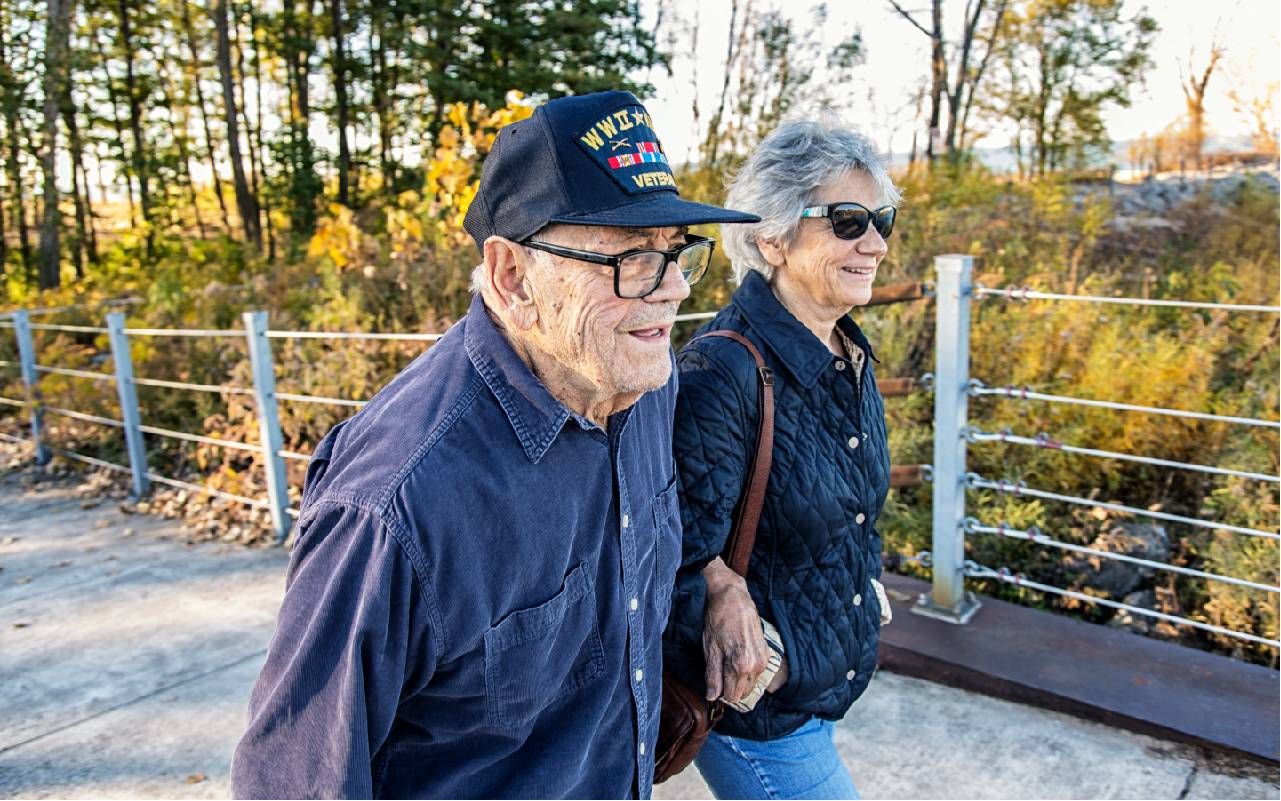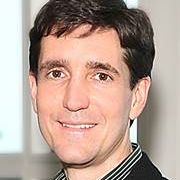Life After Military Service: Families on the Front Lines of Caregiving
There are resources offering help and support to caregivers who face unique challenges helping their wounded warriors heal
Veterans make tremendous sacrifices to protect the freedom and safety of Americans, often returning home with wounds that extend far beyond the battlefield. Caregivers play a critical role in helping these veterans heal physically and emotionally.

"At first, we didn't know where to start or where to turn for help because we were not connected to the military except for Jason."
Pam and Mike Estes became caregivers when their 19-year-old son Jason survived severe injuries from an IED (Improvised Explosive Device) blast. Jason enlisted in the Army after the 9/11 attacks and was sent to Iraq in 2005 as an infantry mortarman. Three months later, his Humvee was blown up by anti-tank mines in Baghdad, Iraq.
Jason suffered a traumatic brain injury, second and third-degree burns to more than half of his body, and multiple leg fractures leading to a lower leg amputation. "At first, we didn't know where to start or where to turn for help because we were not connected to the military except for Jason," says Pam.
Mike made it his mission to learn about services available through the U.S. Department of Veterans Affairs (VA). He discovered many other programs and resources to help with Jason's rehabilitation and care.
From Combat to Caring
According to Hidden Heroes: America's Military Caregivers, a report published by the RAND Corporation, approximately 5.5 million family caregivers in the United States provide care to current or former military service members.
Military caregivers must navigate a maze of red tape to get services through the VA compared with employer-sponsored health insurance plans.
Once the battle ends on the field, it begins at home, where caregivers fight and advocate for their loved ones to secure financial aid and health care services – everything from physical and occupational therapy to wound care and mental health services.
Caregivers of wounded military veterans face unique challenges. Military caregivers must navigate a maze of red tape to get services through the VA compared with employer-sponsored health insurance plans.
"Military caregivers often ask for help navigating the VA Health System, understanding health care benefits and whether they are eligible for a caregiver stipend, adaptative housing grants and survivor benefits," says Kelly Parker, director of independence services at the Wounded Warrior Project.
This national organization offers a variety of programs and services to wounded veterans and their families. "They also seek services to reduce caregiver burnout," Parker says. Caregivers are often helping wounded veterans with amputated limbs, burns, traumatic brain injury (TBI) and post-traumatic stress disorder (PTSD).
Kasey Kelly's husband, Stephen, returned from several tours of duty with PTSD and TBI. While pregnant with their first son, Kasey received a call from Stephen that he was in an IED accident in 2012 – only nine months after they got married. Stephen suffered injuries and a possible TBI but was thought healthy enough to continue serving until he came home from Afghanistan for the baby's birth.
"I struggle as a caregiver, but I continue because I love him."
Kasey noticed changes in her husband's behavior and personality, but he was sent to Kuwait for another duty. Stephen was eventually reassigned to Alaska, where Kasey and now two sons joined him. Kasey noticed new symptoms like anger and aggressiveness towards her. Stephen saw new doctors and started medication to treat PTSD, and was later officially diagnosed with a TBI that has since led to early dementia.
Stephen hit bottom and attempted suicide in 2020 – a year before he was medically discharged from the Army. Kasey has no choice but to be a full-time caregiver to ensure Stephen stays safe.
"I feel like I have been living in the twilight zone and asked myself several times, 'how much longer can I do this?'" admits Kasey. "I struggle as a caregiver, but I continue because I love him. I would want someone to love me through the pain and hardship of finding a new normal."
Getting Help
The Estes moved Jason home rather than move him into a long-term care facility where most people are four times his age. Jason, now 37, relies on his parents and aides for much of his essential care. He needs assistance dressing, bathing, feeding, and moving in and out of his wheelchair.
Initially, the VA provided equipment and home health aides four hours a day, five days a week. The Wounded Warrior Project supplemented that care with additional help from home health aides. For the past 17 years, the Estes have had nine hours of daily help to care for their son.
The Estes had to continue to work full-time to pay the bills, keep health insurance and save for their younger daughter's college tuition. The Estes decided to pay out of pocket for additional help beyond what was provided.
They remained working until they moved from Maryland to southwest Virginia in 2016. The Estes continued to advocate for Jason and other wounded veterans needing care. Mike participated in the Wounded Warrior Project Caregivers Summit in 2009, and Pam was a member representing caregivers on VA advisory committees.
Meeting other families facing similar situations with wounded and recovering veterans has helped the Estes and Kellys.
Three years into his recovery, Jason started equine therapy. Initially, he could not sit up, but he can now ride a horse alone. He's also currently working with a personal trainer who has Jason walking with assistance.
"Jason is able to balance himself for a few seconds," says Pam. "That may not seem like a lot, but it's a huge achievement given his severe injuries, and it surpasses what anyone on his health care team ever imagined he would achieve."
The Estes joined the Wounded Warrior Project and other military families to lobby Congress to successfully pass the Caregiver Act in 2010. The law allows Veterans Affairs to pay a veteran's caregiver, even if that person is a family member. Pam is paid a small stipend to care for Jason.
Taking a Break
Meeting other families facing similar situations with wounded and recovering veterans has helped the Estes and Kellys. The Hidden Heroes Caregiver Community, created by the Elizabeth Dole Foundation, is an online support group that offers a positive place for military caregivers of all eras to connect.
Moderated by caregivers, the program provides a welcoming environment for military caregivers to share their stories, seek advice and find commonality in their challenges. Hearing stories of other military caregivers can be reassuring and motivating. Confessions of a Reluctant Caregiver podcast created a new series of interviews – titled Heroes Caring for Heroes – that features experts and families courageously sharing their journeys of caring for wounded military heroes.
While getting a proper break from caregiving is complex, the Wounded Warrior Project offers retreats to give caregivers time away from their daily duties and recharge. The Estes have done four retreats, leading them to take occasional vacations alone.
Kasey has learned to make time for herself. Stephen helped her build a flower garden at their folk Victorian-style home in Virginia, where they now live. "Growing flowers and creating beautiful bouquets brightens up my day and has been very cathartic for me," she says.
In addition, Kasey volunteers with Healing Strides of Virginia, an equestrian therapy riding center for all families with a special veterans riding program. She recently started a women's group called Stitch and Neigh at Healing Strides, where the women bring knitting or embroidery to work on and talk for an hour.
According to Pam Estes, in the end, caring for her son is worth the hard work. "Doctors have repeatedly stated that Jason would not be as far along as he is if not for being home and getting the individualized care he gets."


